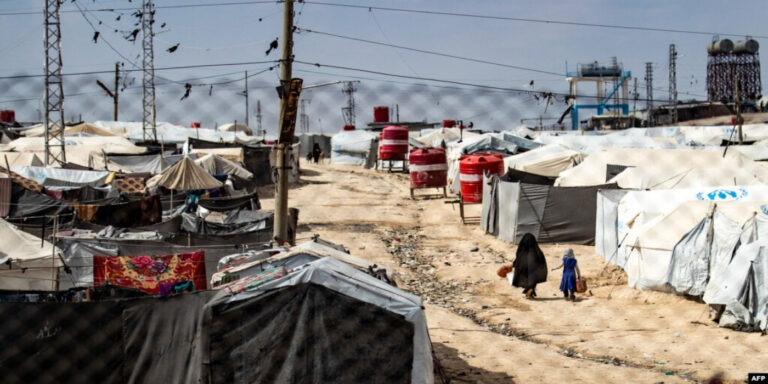HALIFAX, NOVA SCOTIA — Canadian officials have so far shown little interest in repatriating any of the Canadian nationals still imprisoned among the former Islamic State fighters in Kurdish-run prisons in Syria, illustrating the wider problem confronting their U.S.-backed captors.
The Kurdish-led Syrian Democratic Forces (SDF), which spearheaded the struggle to drive IS from its self-declared caliphate in 2019, is still holding more than 10,000 members of the extremist group in its desert prisons, including an estimated 2,000 foreign nationals.
An estimated 50,000 additional wives, children and other IS sympathizers are being held in sprawling and squalid camps. But repeated SDF appeals for the foreign fighters to be repatriated and placed on trial in their home countries have largely fallen on deaf ears.
Canada, which contributed troops to the anti-IS effort, has so far brought home no IS fighters and only a handful of women and children. Even that has been controversial, due in part to fears of importing terrorism onto Canadian soil.
Phil Gurski, a former Canadian intelligence officer who follows the issue, is among those who worry about what will happen if the extremists return.
“I’m sure some people abandon the idea [of extremism] eventually,” Gurski said in an interview. “Doesn’t mean they have.”
As evidence, he pointed to a 2017 event in which a female IS supporter, who had just returned home to Canada after trying unsuccessfully to reach the so-called caliphate, walked into a Toronto-area business and attacked people at random with a knife and a golf club. No one was injured.
Gurski says in cases like hers, the motive is clear: “If I can’t do it there, I’ll just do it here.”
Canadian authorities declined to provide VOA with a precise count of how many Canadians joined IS or where they are now, but Gurski estimated that about 200 citizens went abroad to join terrorist groups in recent years and that about 60 of them joined IS in Syria and Iraq.
He said about 30 still appear to be outside the country, several of them in the Syrian prisons.
Source : VOA News


